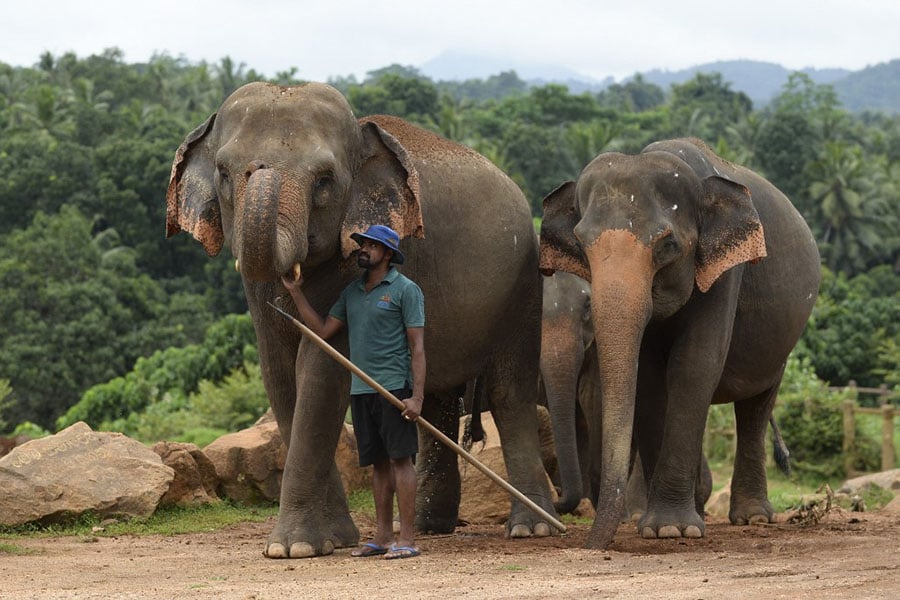
Some animals could play a key role in fighting global warming
A team of researchers studied nine species in particular—marine fish, whales, sharks, grey wolves, wildebeest, sea otters, musk oxen, African forest elephants and American bison—and found that they facilitate the capture and storage of carbon
 Elephants play a role in the elimination of carbon dioxide.
Image: Lakruwan Wanniarachchi / AFP
Elephants play a role in the elimination of carbon dioxide.
Image: Lakruwan Wanniarachchi / AFP
The recovery and protection of certain animal species could help put the brakes on global warming. A team of researchers studied nine species in particular and found that they facilitate the capture and storage of carbon.
Published in the journal Nature Climate Change, the study was conducted by 15 scientists across eight different countries. Nine wildlife species were examined: marine fish, whales, sharks, grey wolves, wildebeest, sea otters, musk oxen, African forest elephants and American bison.
The protection of these species and their habitats could facilitate the capture of 6.41 billion tons of CO2 per year. These tons could contribute to keeping global warming below the 1.5-degree Celsius threshold, one of the goals set by the Paris agreement. "Expanding climate solutions to include animals can help shorten the time horizon over which 500GtCO2 is drawn out of the atmosphere, especially if current opportunities to protect and rapidly recover species populations and the functional intactness of landscapes and seascapes are seized on," the researchers explain in a Yale University press release.
"Wildlife species, throughout their interaction with the environment, are the missing link between biodiversity and climate," says Oswald Schmitz, lead author of the study and professor of population and community ecology. "This interaction means that rewilding can be among the best nature-based climate solutions available to humankind."
Animals appear to play an essential role in regulating the carbon cycle. A previous study out of Stanford University and published in PNAS (Proceedings of the National Academy of Sciences) showed that African forest elephants facilitate the dispersal of plants with high wood density, which absorb large quantities of carbon. Foraging, nutrient deposition, organic carbon deposition, and seed dispersal are among the various animal processes that help maintain terrestrial, marine, and freshwater ecosystems. Animals' presence in an area therefore can totally change the dynamics of carbon uptake and storage.







